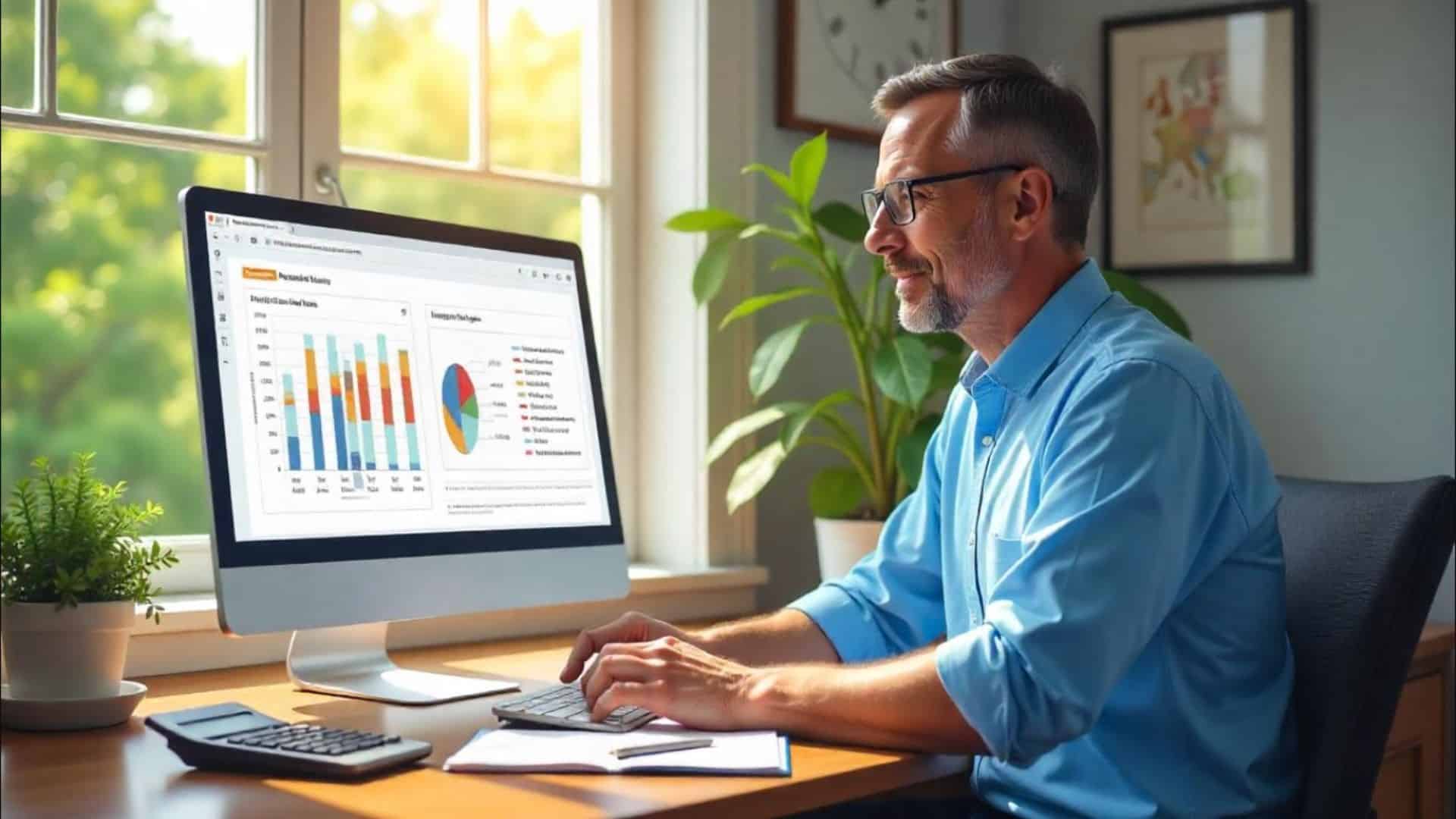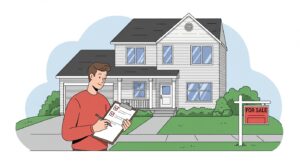
How Do You Sell a House Without a Realtor in Georgia?
Selling a house without a realtor in Georgia is entirely possible—and it can save you thousands in real estate commission fees. But before jumping into the FSBO (For Sale By Owner) process, it’s important to understand what it takes to attract potential buyers, negotiate offers, and navigate legal requirements without the support of a traditional real estate agent.
A successful home sale starts with the right preparation. Ensuring your home is clean, well-maintained, and priced correctly is essential. Marketing also plays a huge role—leveraging online listing platforms, social media, and open houses can help your property stand out in a competitive market. From there, handling purchase agreements, negotiating terms, and working with a real estate attorney will ensure a smooth closing process.
While taking the FSBO route means skipping the listing agent and saving money, it also means taking on responsibilities that a real estate transaction typically delegates to professionals. The good news? There are affordable, tech-driven solutions that provide the same tools and marketing expertise agents use—giving you full control without the high costs.
If you’re wondering how to sell your house without a realtor in Georgia, understanding state-specific real estate laws, disclosure requirements, and closing procedures will set you up for success. We’ll walk you through each step to ensure you sell your house efficiently and for the best price.
Steps to Sell Your House Without a Real Estate Agent in Georgia
Selling your home without a real estate agent gives you full control over the selling process, but it also requires careful planning. From setting the listing price to navigating legal paperwork, every step plays a role in ensuring a smooth and profitable FSBO sale.
The key to success is using the right strategies and tools—ones that help you market your home effectively, attract prospective buyers, and handle negotiations with confidence.
Step 1: Prepare Your Home for Sale
Declutter and Depersonalize: First impressions can make or break a home sale, and nothing turns away potential buyers faster than a cluttered space. Start by removing personal items, excess furniture, and anything that makes rooms feel crowded. A clean, well-organized home appears more spacious, making it easier for buyers to envision themselves living there. Focus on high-impact areas like the entryway, kitchen, and living spaces, and consider simple staging techniques—like fresh linens and neutral decor—to create a welcoming atmosphere.

Make Necessary Repairs: Fix any minor issues like leaky faucets, broken tiles, or chipped paint. These small repairs can make a big difference. According to a survey by Porch, 86% of home inspections identify at least one problem. Addressing these issues upfront can save you headaches later.
Professional Photography: High-quality photos are essential for your online listing. Hire a professional photographer to capture your home in the best light. Homes with professional photos sell 32% faster and for more money.
Step 2: Set the Right Price
Comparative Market Analysis (CMA): Research recent sales of similar homes in your area. This will give you a realistic idea of what your home is worth. Websites like Zillow and Trulia can provide useful data, but a professional appraisal can offer an unbiased opinion.
Pricing Strategy: Finding the right listing price is a balancing act. Price too high, and potential buyers may overlook your home in favor of more competitively priced options. Price too low, and you risk leaving money on the table. While utilizing CMA, keep in mind that FSBO listings often sell for less than agent-represented homes. Price strategically—high enough to reflect your home’s market value but realistic enough to attract strong offers in Georgia’s real estate market.

Step 3: Market Your Property
MLS Listing: Getting your home in front of as many prospective buyers as possible is key to a successful FSBO sale. Instead of relying solely on yard signs and social media, list your home on the Multiple Listing Service (MLS) through a flat-fee, full-service real estate platform that provides widespread exposure. The MLS feeds directly to major real estate websites, ensuring your listing appears where buyers are actively searching.
Social Media: Use social media platforms to market your home. Share your listing, post photos, and create engaging content to attract potential buyers.
Yard Signs: A well-placed yard sign can attract local buyers. Make sure it’s visible from the street and includes your contact information.
Open Houses: Schedule open houses to allow potential buyers to tour your home. Make sure your home is clean and staged for these events. Open houses can generate interest and create a sense of urgency among buyers.
Step 4: Handle Offers and Negotiations
Offer Management: Once offers start coming in, review them carefully. Look beyond the sale price; consider the buyer’s financing, closing timeline, and any contingencies.
Counteroffers: Don’t be afraid to negotiate. If an offer is too low, counter with a price that’s closer to your asking price. Be prepared for some back-and-forth, but stay professional and detached.
Buyer’s Agent Commission: Even though you’re selling FSBO in Georgia, you may still need to pay a commission to the buyer’s agent. This is typically 2-3% of the sale price. Factor this into your pricing strategy to avoid surprises.
By following these steps, you can successfully sell your house without a realtor in Georgia. From preparation to negotiations, each step requires careful planning and execution.
Pros and Cons of Selling Without a Realtor
Selling your home without a real estate agent comes with both benefits and challenges. While it allows you to save money on real estate commission fees and maintain full control over the selling process, it also means taking on tasks that a traditional listing agent would typically handle. Understanding the FSBO route from all angles will help you decide if it’s the right choice for your situation.
Advantages of FSBO
Many home sellers choose to go the FSBO route for the following reasons:
No Commission Fees – Typically, sellers pay 5-6% of the sale price in real estate commission fees, split between the listing and buyer’s agent. By selling without a realtor in Georgia, you avoid the listing agent’s fee, keeping more of your profit.
Full Control Over the Sale – You decide the listing price, marketing strategy, and negotiation terms. This allows you to tailor the selling process to fit your schedule and priorities.
Direct Interaction with Buyers – Without a middleman, you can personally answer questions, highlight your home’s best features, and connect with potential buyers. According to the National Association of Realtors, 57% of FSBO sellers already know their buyer, making the process more personal and efficient.
Selling FSBO can be a great option for those who want to take charge of their home sale, especially with access to full-service real estate platforms that offer the tools and guidance needed to navigate the real estate transaction successfully.
Disadvantages of FSBO
While selling your house without a real estate agent can save you money, it also comes with added responsibilities. Handling every aspect of the home sale yourself requires time, effort, and expertise. Here are some challenges to consider before choosing the FSBO route:
Disadvantages of FSBO
Time-Consuming – Managing the selling process yourself means handling marketing, showings, negotiations, and paperwork, which can feel like a full-time job.
Pricing Challenges – Many FSBO listings sell for less due to inaccurate pricing. Without market expertise, setting a competitive price can be difficult.
Legal Complexities – A real estate transaction involves extensive paperwork. Mistakes can cause delays, legal issues, or financial penalties.
Limited Exposure – Without access to the MLS and professional marketing tools, reaching potential buyers can be harder.
Emotional Stress – Negotiating directly with buyers can be stressful, especially when handling counteroffers or difficult discussions.
Negotiation Challenges – Without an experienced negotiator, FSBO sellers often accept lower offers or less favorable terms.
Safety Concerns – Showing your home to strangers requires extra precautions since there’s no vetting process in place.
Selling FSBO requires careful planning and effort, but flat-fee real estate platforms can provide the necessary tools, support, and marketing reach—helping you navigate the process while still saving on real estate commission fees.
What FSBO Sellers Need to Know About Georgia’s Closing Process
Closing on a FSBO sale in Georgia involves legal paperwork, financial coordination, and strict requirements. Unlike some states, Georgia requires a real estate attorney to oversee the closing, ensuring all legal documents are in order. While this may seem overwhelming, the right online real estate platform can simplify the closing process, providing expert guidance without the high costs of a traditional real estate agent.

Why You Need a Real Estate Attorney
In Georgia, a real estate attorney is legally required to handle closings, ensuring all documents comply with state laws. They help with:
Drafting and reviewing contracts – Including the purchase and sale agreement, disclosures, and financing terms.
Resolving legal issues – If disputes arise, your attorney can mediate to keep the real estate transaction on track.
Managing the closing process – Overseeing paperwork, fund transfers, and ensuring legal compliance.
Key Steps to Closing
Once you’ve accepted an offer, several important steps follow before the sale is finalized:
Prepare the Necessary Documents
Purchase Agreement – The legally binding contract outlining the selling price, terms, and contingencies.
Disclosure Forms – Required to inform the buyer of any known property issues.
Mortgage Payoff Amount – If you have an existing loan, request a payoff statement from your lender.
Title and Escrow Management
Title Search – A title company will verify that the property is free of liens or ownership disputes.
Escrow Account – Holds the earnest money deposit and ensures funds are disbursed correctly.
Closing Day: What to Expect
Final Walkthrough – The buyer inspects the home to confirm it’s in agreed-upon condition.
Signing Documents – You’ll finalize the purchase contract, deed transfer, and closing statement.
Funds Transfer & Key Exchange – The buyer’s lender disburses funds, and you hand over the keys.
Final Steps to Wrap Up the Sale
Confirm Buyer’s Financing – Ensure they have a solid mortgage approval.
Review the Settlement Statement – Double-check all costs and fees.
Transfer Utilities – Arrange for the switch before the closing date.
By streamlining these steps, flat-fee real estate platforms offer the tools and support needed to make the FSBO selling process easier—helping sellers close efficiently while saving money on real estate commission fees.
Sell Your Home in Georgia with Confidence
Selling your house without a realtor in Georgia can be a rewarding and cost-saving experience—if you have the right tools and knowledge. From setting a competitive price and marketing your home effectively to handling legal documents and closing the sale, every step can maximize your home’s sale price and ensure a smooth transaction.
While going the FSBO route means skipping the listing agent and saving on real estate commission fees, it doesn’t mean you have to navigate the process alone. ListingSpark provides everything you need to sell your house without a realtor—from MLS access and high-quality photos to automated showings and expert offer guidance. Plus, with flat-fee pricing, you keep more of your profit without sacrificing the essential tools and support needed for a successful home sale. Get started today with ListingSpark and experience a smarter, more affordable way to sell your home.
Related Posts
Digital Home Sales: How to Sell Your Home Online in 7 Steps
Selling your home no longer means you have to put up yard signs, organize open houses, or even hire a listing agent. Instead, you can learn how to sell a house online at a fraction…
Flipping a House Checklist: Steps to Sell for Maximum Profit
You got a great deal on an investment property. You spent countless hours going back and forth with contractors and subcontractors. You’ve matched and picked out paint, the perfect paint. You’ve pulled teeth to get…
7 Best Apps for Real Estate Investors in Texas
Texas homes continue to move quickly, with many properties listed for less than two months before they find a buyer. In a local market where inventory remains low and prices stay high, real estate investors…




